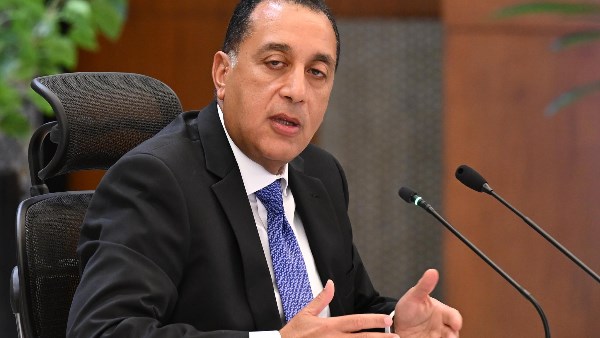
Five of the BOE’s nine policymakers voted for the cut
Bank of England cuts interest rates: Here's what it means for your money

The Bank of England cut interest rates on Thursday in a move likely to bring relief to borrowers, businesses and hard-pressed consumers across the country.
The central bank reduced its key interest rate from 4.5% to 4.25% at its latest monetary policy meeting amid a backdrop of lackluster economic growth and uncertainty around President Donald Trump’s trade tariffs.
The cut had been widely expected, especially after a slowdown in price rises, with inflation cooling to 2.6% in the twelve months to March (from 2.8% the previous month).
Five of the BOE’s nine policymakers voted for the cut, with two members wanting a larger 50 basis-point reduction, and two wanting to keep rates on hold.
The BOE said Thursday that uncertainty surrounding global trade policies had intensified since the imposition of U.S. tariffs and subsequent retaliatory measures. The “prospects for global growth have weakened as a result of this uncertainty and new tariff announcements, although the negative impacts on UK growth and inflation are likely to be smaller,” it added.
Many British households and firms will be thankful for the rate cut as it will make borrowing money a little less expensive. Savers, who reap the benefits of higher rates of interest on their savings accounts, stand to lose out.
“Just as the response to rate hikes was textbook — slower growth, soft housing market activity and higher saving, the response to rate cuts should also be textbook,” Kallum Pickering, chief economist at Peel Hunt told CNBC Thursday.
“Business and consumers hold significant cash balances while debt-to-income ratios are at multi-decade lows. By easing the brakes on an economy full of pent-up potential, expect a positive response in investment, spending and housing activity,” he said.
Here’s a quick look at the winners and losers from the Bank of England’s latest rate cut:
Homeowners
A 25-basis-point reduction in the Bank of England’s base rate will be a boon for anyone looking to buy a new home and get a cheaper “fixed-rate” mortgage deal from a bank or lender, or for those re-mortgaging and looking for new deals after their fixed-rate term expires.
Residential mortgages with a fixed rate make up the bulk (85%) of existing mortgages, according to data from UK Finance released Thursday. Of the total number of fixed-rate deals, UK Finance analysis shows that around 1.6 million will end in total in 2025, meaning the latest drop in the Bank of England’s key rate will be good news for those looking to find a new offer.
Of course, households that already have a fixed monthly mortgage won’t feel the benefit of an interest rate cut. As of Thursday, the average 2-year fixed mortgage rate was 4.66% while the average 5-year fixed rate was 4.61%, according to data from Rightmove.
A cut is good news for the 591,000 homeowners in the U.K. on a “tracker” mortgage rate, however, that rises or falls with the Bank of England’s base rate. A 25-basis-point cut translates to a £29 reduction in monthly payments for the average customer on a tracker, UK Finance states.





-1120252475029447.jpg)













